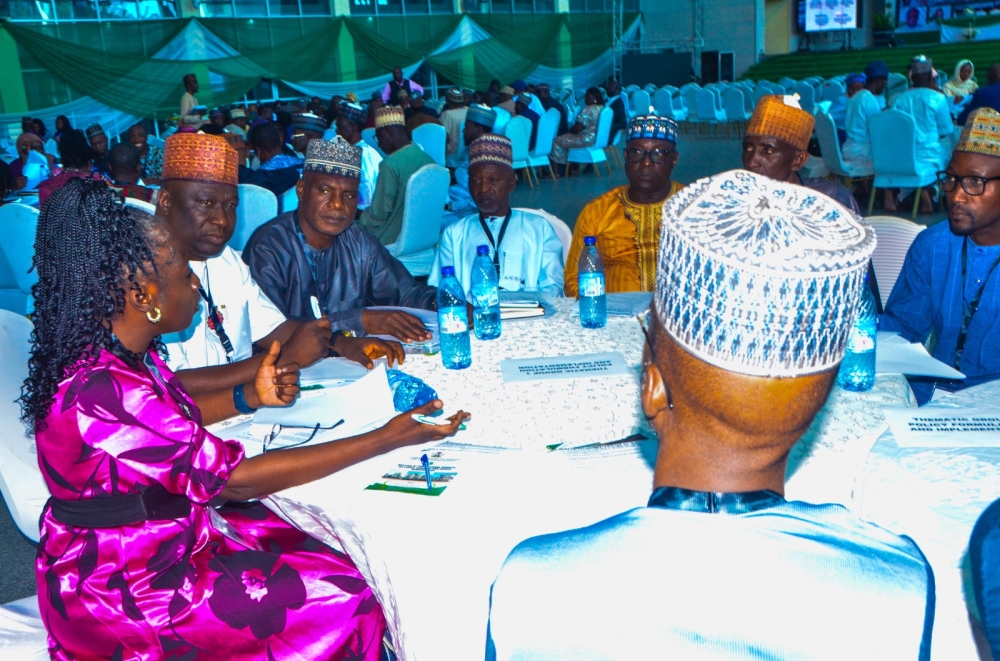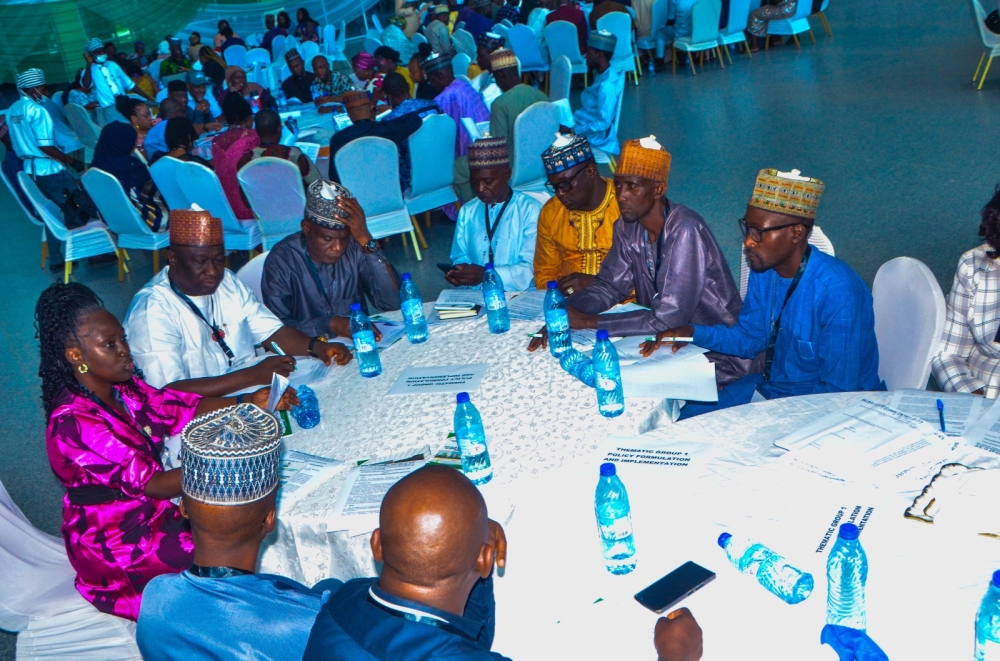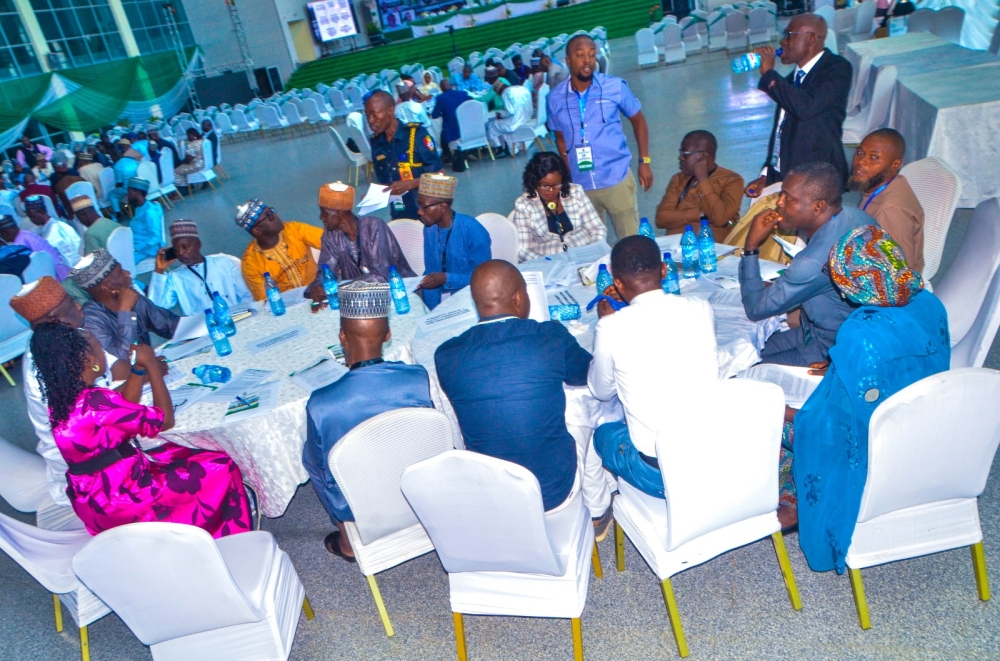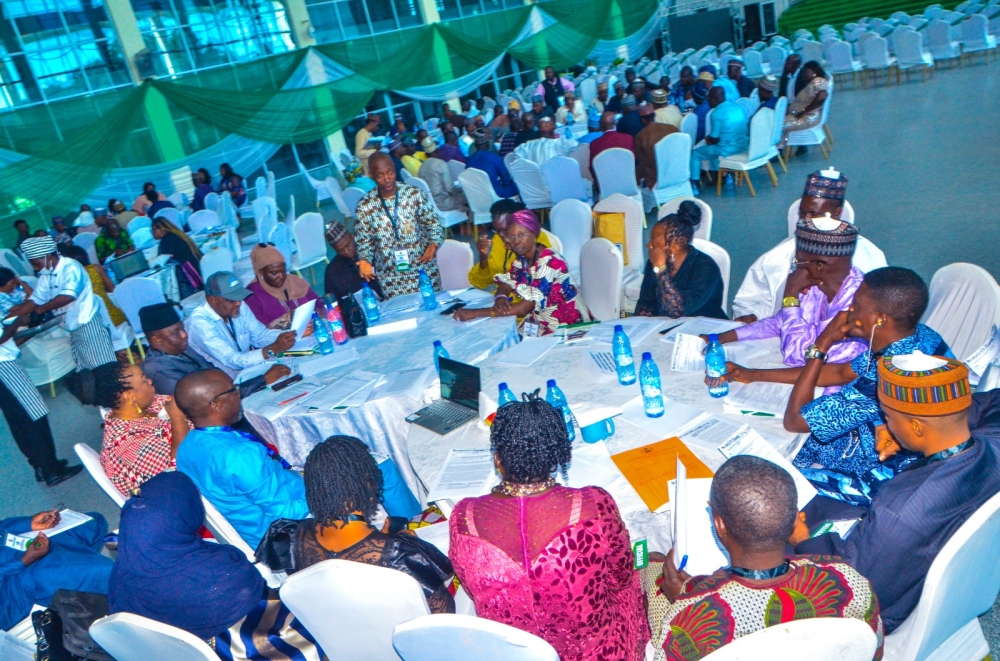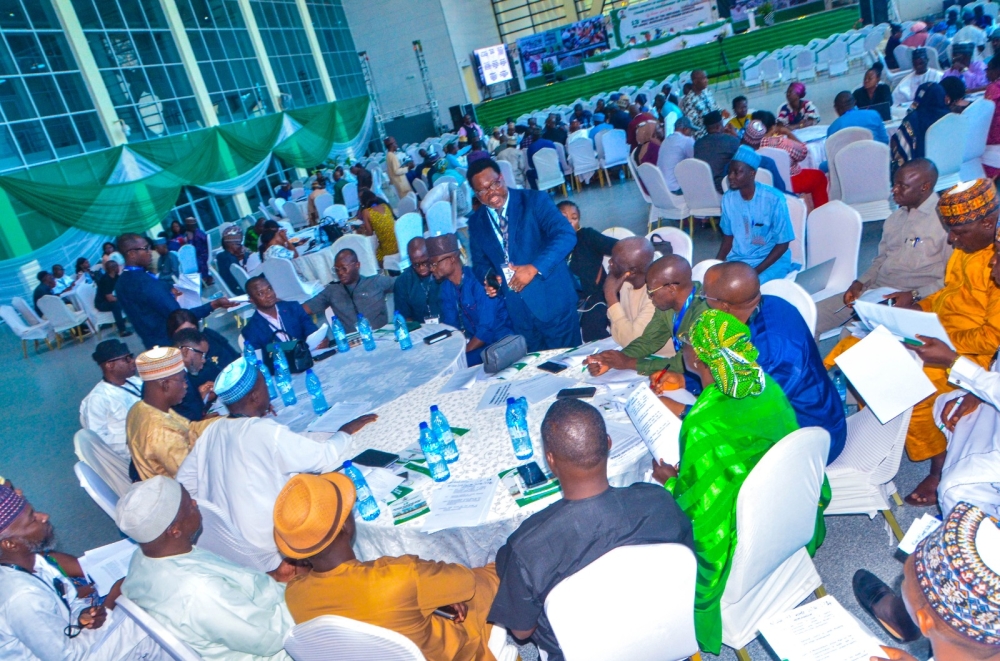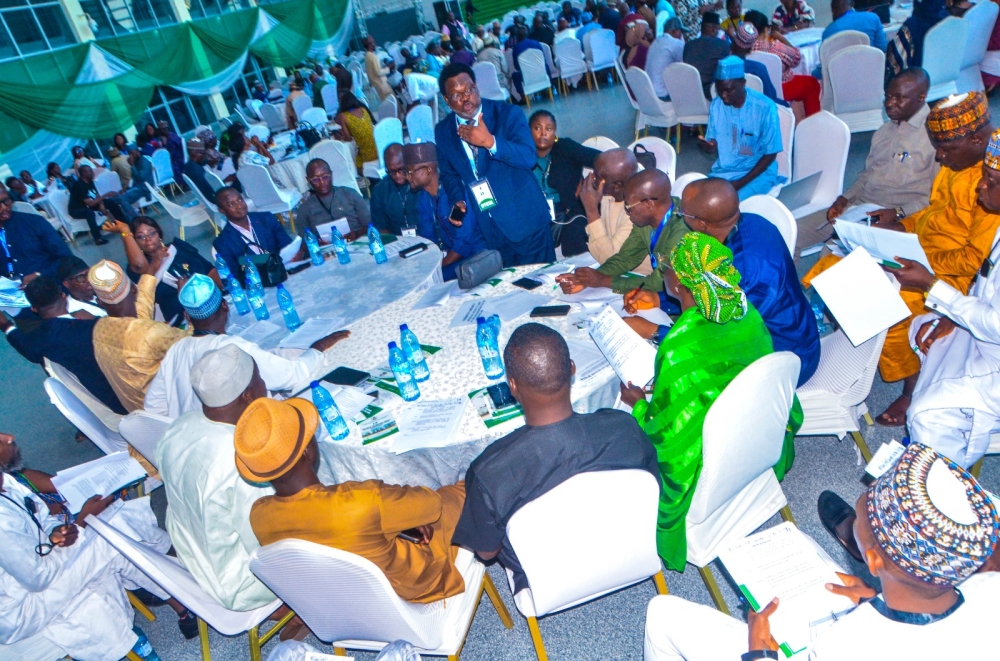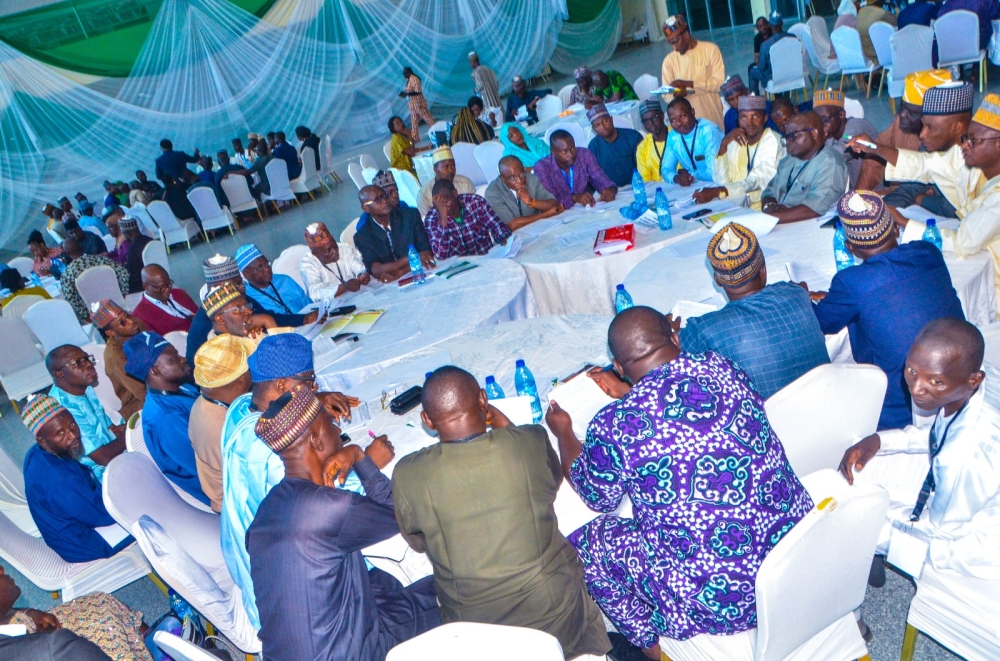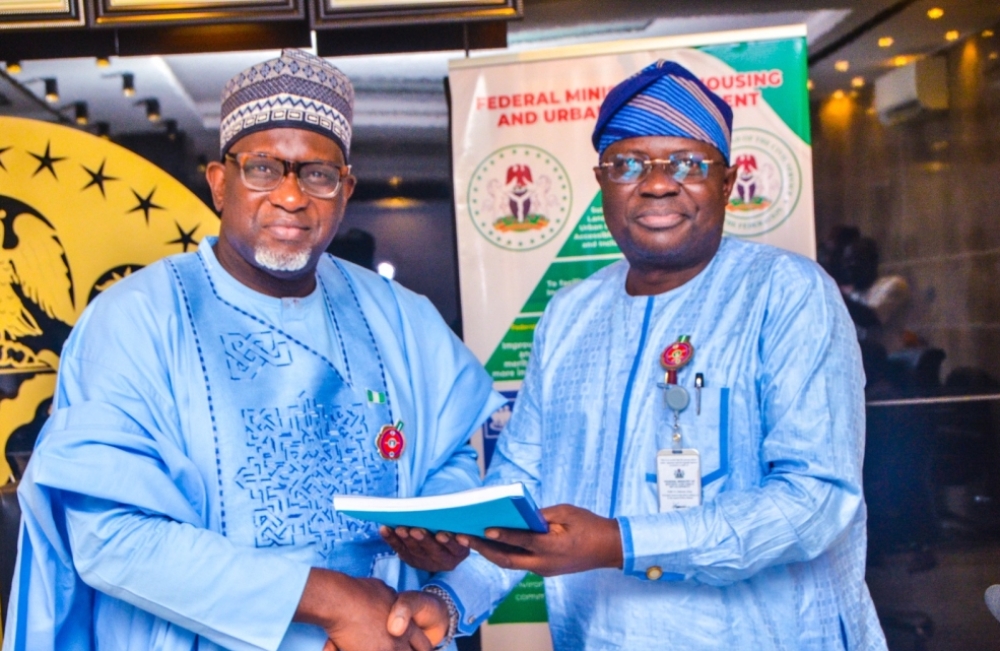
Belgore Assumes Office as Permanent Secretary Housing Ministry, Assures Staff of inclusiveness, team work
* FMHUD in safe hands - Ogunbiyi
Dr Shuaib Mohammed Lamido Belgore has assumed office as the new Permanent Secretary, Federal Ministry of Housing and Urban Development. He replaced Dr Marcus Olaniyi Ogunbiyi who was redeployed to the Federal Ministry of Agriculture and Food Security.
In a brief handing and taking over ceremony today, Tuesday, December 24th, 2024, at the Conference hall of the Housing Ministry, Dr Belgore who was redeployed from Federal Ministry of Regional Development assured the staff of his readiness to work with them as a team, stating that his pattern of leadership revolves round inclusivity.
" Generally, my style is that of being inclusive. I work with whom I meet on ground and want to work with you. I believe in team work, " he said.
Belgore enjoined the staff of the ministry to be hardworking, committed in the line of duty and embrace the culture of loyalty and transparency.
" I expect hard work, commitment and loyalty." he stated
Declaring his readiness to hit the ground running, Belgore has directed the Director, Planning, Research and Statistics of the Ministry to earnestly brief him on the status of the Ministry on FSCCIP and the housing sector ministerial delivery because of their importance to the current administration.
Belgore said, "I want to know where we are on the FSCCIP as well as the Ministerial delivery. I want to know the job ahead of me because these are the two main things I have to achieve while carrying out the mandate of the ministry."
Similarly, the Permanent Secretary also urged the Director, Reform Coordination and Service Delivery of the ministry to be prepared for work ahead, noting the department is responsible for the coordination of the FSCCIP.
"The Director, Reform Coordination and Service Delivery, you have a lot of work to do because you have to do the coordination," he asserted.
Dr Belgore also advised the directors at the meeting to get the presentations on their departments ready using the template that would be circulated to them from his office.
"I expect presentations. Templates will be circulated, exactly what I want to know, I want that given to me," he noted.
On Renewed Hope Cities and Estates, the Permanent Secretary gave assurance of his commitment to ensuring successful delivery of the projects by the ministry.
"The Renewed Housing is a big deal. I intend to ensure that we succeed with it. We will carry from where he has left it and we will move to the greatest height so we can achieve more," he assured.
On his part, the outgoing Permanent Secretary, Dr, Marcus Ogunbiyi informed his incoming colleague of the flagship projects of the ministry which he listed as; Renewed Hope Cities and Estates, National Housing Project, Slum Upgrade among others, adding, it is important to see that the projects succeed because they are the programme that give the ministry the name it bears, " Federal Ministry of Housing and Urban Development.
Dr. Ogunbiyi, expressed his appreciation to the staff and called on the management and staff of the Ministry to give the incoming Permanent Secretary all the necessary support to make him succeed , stating that if the ministry fails it is the Permanent Secretary that would take the blame.
He also assured the staff not be anxious of who the incoming Permanent Secretary is, assuring them they are in safe hands.
Earlier in a welcome remarks, Director, Human Resource and Management, Akinola Adesina described the Dr Murcus Ogunbiyi as a wonderful, though tough because he believes in result, person to work with while describing the incoming Permanent Secretary, Dr. Shuaib Belgore as equally a wonderful person whom he had worked with while in Federal Ministry of Interior.
On ground to receive the new Permanent Secretary and witness the handing and taking over were the Directors, Heads of Developments and Units of the Ministry.
Close

